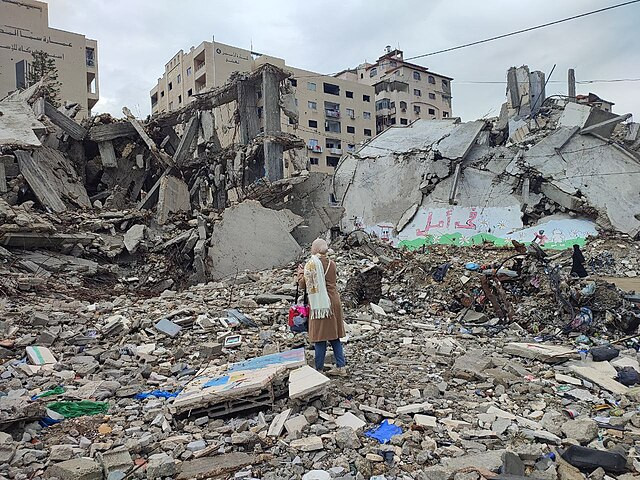Israeli airstrikes on Gaza's Nasser Hospital compound killed at least 20 people Monday, including four journalists working for international news outlets, health officials and media organizations said. The incident underscored both the mounting civilian toll of the nearly two-year conflict and the risks facing local reporters who remain the primary source of on-the-ground coverage.
The Gaza Health Ministry said two missiles struck the hospital in Khan Younis within minutes of each other. The first hit the fourth floor of one of the compound's buildings, according to hospital director Atef al-Hout. A second strike followed as reporters and a rescue team attempted to reach the injured, killing journalists and medical staff.
Among the dead was Mariam Dagga, 33, a freelance visual journalist who had contributed to the Associated Press and other outlets during the war. The AP, in a statement, said it was "shocked and saddened" by her death. Dagga frequently worked from Nasser Hospital and had recently reported on doctors treating children suffering from malnutrition. She is survived by a 12-year-old son, who had been evacuated from Gaza earlier in the war.
Other journalists killed included Hussam al-Masri, a cameraman contracted by Reuters; Mohammed Salama of Al Jazeera; and Moaz Abu Taha, who worked with NBC. Reuters also said its photographer Hatem Khaled was wounded. Al Jazeera broadcast video of the second strike, which showed reporters and medics rushing to the scene before the blast.
The Israel Defense Forces confirmed it carried out a strike in the hospital area. IDF spokesperson Lt. Col. Nadav Shoshani said Chief of Staff Lt. Gen. Eyal Zamir had ordered an immediate inquiry. "The IDF regrets any harm to uninvolved individuals and does not target journalists as such," Shoshani said. He added that the military "acts to mitigate harm to uninvolved individuals as much as possible while maintaining the safety of IDF troops."
The Committee to Protect Journalists said at least 192 reporters have been killed in Gaza during the 22-month war, making it one of the deadliest conflicts for the press in recent history. By comparison, 18 journalists have died covering Russia's invasion of Ukraine. Thibaut Bruttin, director general of Reporters Without Borders, said the Gaza war represents "a severe step backward for reporters' safety," adding: "They are doing everything they can to silence independent voices that are trying to report on Gaza."
Israel has often accused Palestinian journalists of ties to militant groups, citing the case of Al Jazeera's Anas al-Sharif, whom the military alleged led a Hamas cell before he was killed earlier this month. The network and al-Sharif himself had rejected those claims as baseless.
International media remain barred from independently entering Gaza, forcing reliance on Palestinian reporters like Dagga, al-Masri, and Salama to document conditions. Many of those journalists face the same struggles for food and safety as the residents they cover.





